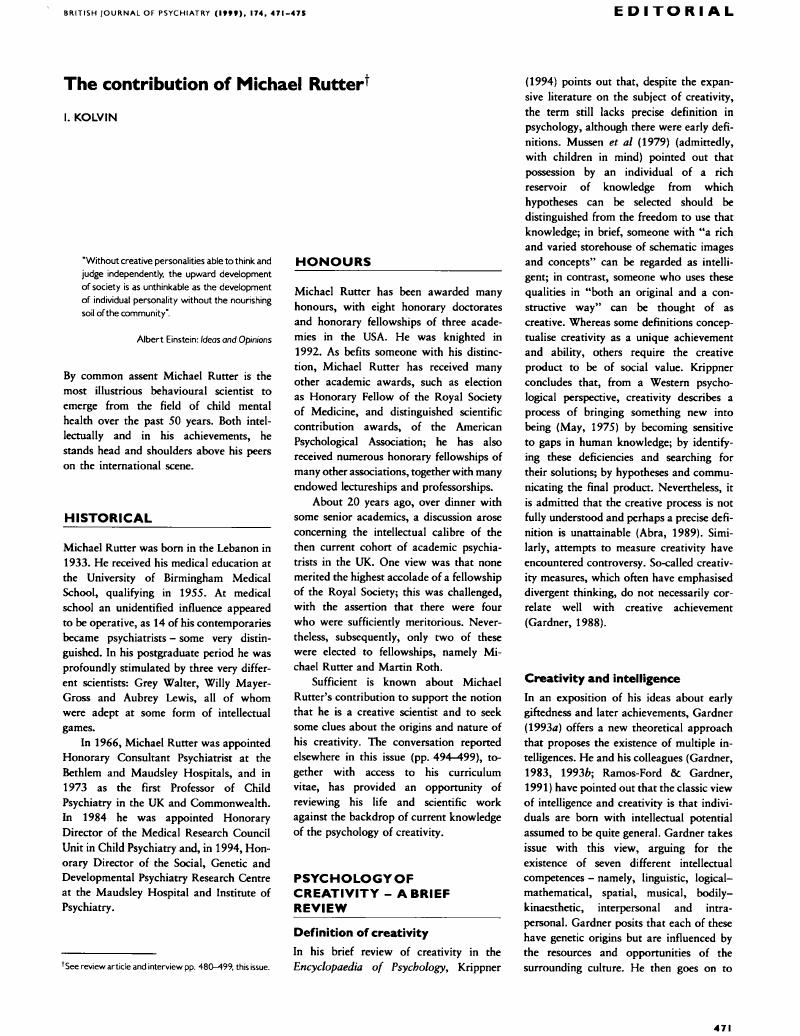Crossref Citations
This article has been cited by the following publications. This list is generated based on data provided by Crossref.
Volkmar, Fred R.
2020.
Encyclopedia of Autism Spectrum Disorders.
p.
1.
Greydanus, Donald E.
Apple, Roger W.
and
Chahin, Summer S.
2021.
Integrated Behavioral Health Care.
Pediatric Clinics of North America,
Vol. 68,
Issue. 3,
p.
519.
Volkmar, Fred R.
2021.
Encyclopedia of Autism Spectrum Disorders.
p.
4033.
Straub, Rainer H.
2022.
Frühe Traumata als Ursprung von chronischer Entzündung.
p.
13.
Straub, Rainer H.
2023.
Early Trauma as the Origin of Chronic Inflammation.
p.
13.




eLetters
No eLetters have been published for this article.